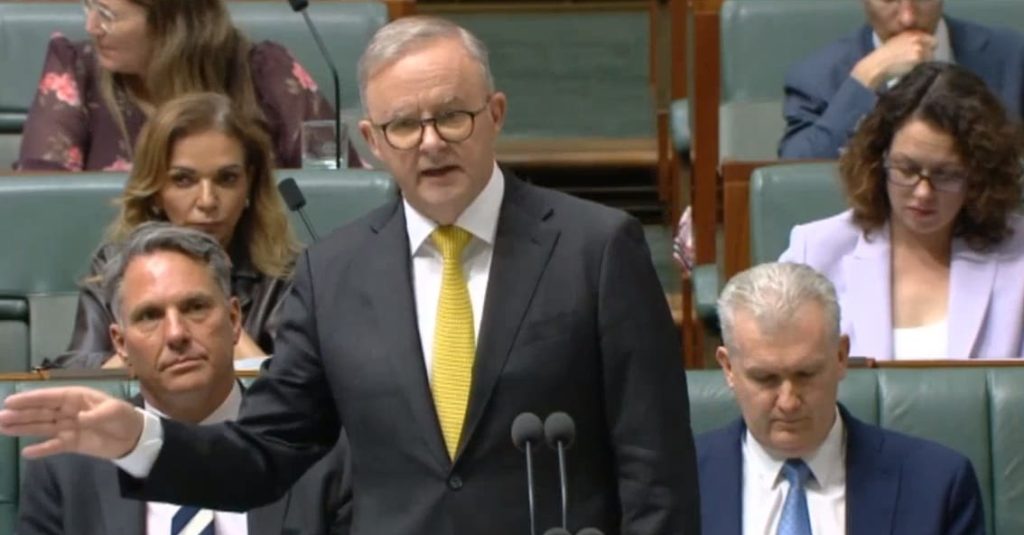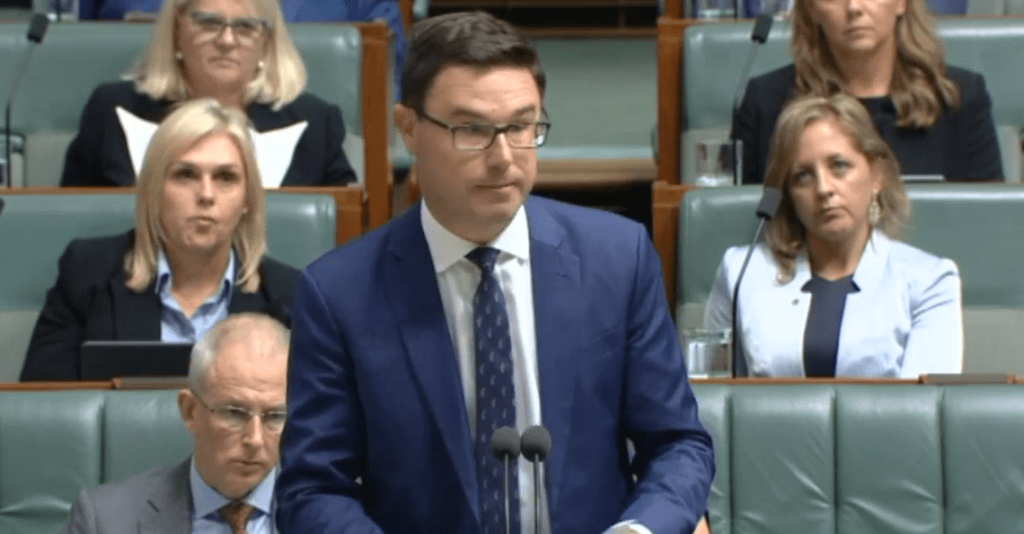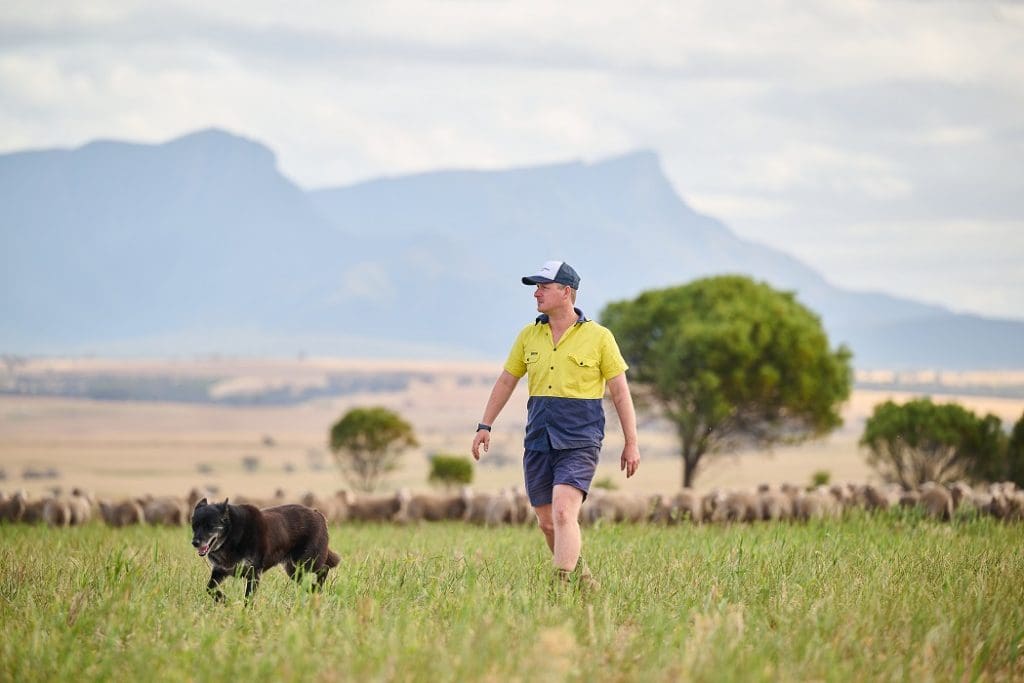
FARMERS and the Nationals have gone on the attack this week in an attempt to undermine the Albanese Government’s proposed phaseout of live sheep exports by sea.
The National Farmers Federation’s Keep Farmers Farming started an advertising and media campaign in Western Australia in support of the trade, while Nationals leader David Littleproud questioned the government for failing to do economic modelling before announcing the phaseout policy.

Prime Minister Albanese responds to David Littleproud – question time.
In parliamentary question time yesterday, Prime Minister Albanese was unable to cite any prior economic impact modelling when asked by Mr Littleproud, who said sheep prices across the nation have plummeted by up to 70 percent, industry confidence has collapsed and farmers are being forced to the wall “as a result of the government’s announcement to shut down the live sheep export industry.”
“The contradiction in the leader of the National Party’s question is that he is saying that a foreshadowed policy that hasn’t happened, has had this massive impact, has had this massive impact,” Mr Albanese said.
“Because price of course, doesn’t go to investment – it’s about future, future and what we have done … is say that we will respond to this in a considered an an orderly way.
“We have appointed a four-person independent panel to consult with partners, communities, supply chain participants to do all of this, to inform when and how this policy could be implemented,” he said.
“That’s why we have not, very clearly, not put a dateon when the phaseout will occur.
“We’ve said we will consult with industry in the interests of a strong and sustainable future for the Australian sheep wool and sheep meat industry,” Mr Albanese said.
He said the government had also negotiated with Australia’s trading nations to open up further exports.
In Senate Estimates last month the Australian Bureau of Agricultural and Resource Economics admitted that no analysis on the impact of the proposed live sheep phaseout on sheep prices had been included in a recent report and that there was no link between lower sheep prices and the phaseout policy.

David Littleproud questions the government on its live sheep export phaseout policy in parliamentary question time.
Mr Littleproud said the Prime Minister’s response directly contradicted the experience of farmers and their peak industry representatives.
“More than 20 of Australia’s peak agricultural bodies co-signed a letter to the Prime Minister, urging Labor to reconsider its ban on live sheep exports, stating ‘the fallout associated with the policy announcement is already occurring with a devastating collapse in producer confidence and the sheep industry – not just in Western Australia, but nationally’,” he said.
“Farmers sent this letter to the Prime Minister six weeks ago, but it hasn’t been responded to.
“Labor is destroying the livelihoods of 3000 people but failed to properly consider the wider implications,” Mr Littleproud said.
“The Prime Minister’s response shows Labor doesn’t understand the live sheep export trade and doesn’t even have the courtesy to respond to farmers’ real concerns.”
Minister for Agriculture Fisheries and Forestry Murray Watt is yet to release the findings of the independent panel into the live sheep export phaseout. The panel recently commissioned some economic modelling on the phaseout’s impact, but has not released it.
“Minister Watt made decisions without being given proper modelling or details about the impact of banning live sheep exports,” Mr Littleproud said.
“This is an industry that has already lost confidence in the Minister, because he has turned his back on the live sheep industry.
“A future Coalition government with The Nationals will ensure the live sheep export trade is saved. Unlike Labor, The Nationals support Australian farmers and their exports.”
NFF starts banner campaign in WA

WA sheep and grain farmer Jamie Spence
NFF president David Jochinke said with a decision imminent about the future of the trade, it was critical that voters in battleground seats like Swan, Tangney and Hasluck understood what a ban would mean for jobs and small farming communities in WA.
On Monday, the NFF erected a billboard beside the Canning Highway in Como coinciding with a media campaign in support of the trade. Print, digital and outdoor ads running in Perth this week will feature sheep and grain farmer Jamie Spence, from Borden in WA’s Great Southern.
Mr Jochinke said the phaseout policy is already hurting and frustrating farmers.
“We’re already hearing accounts of farmers getting out of sheep because they don’t know what the future holds.
“What we’re seeing now is only the beginning. Shut down this trade and the whole future of WA’s $650 million Merino wool industry is dicey at best,” he said.
“This isn’t just about the farmers. It’s the truck drivers, the livestock agents, the local schools and sporting clubs that all depend on this trade.”
Mr Jochinke said the government’s policy was based on an outdated activist campaign and was due for a rethink.
“This policy has nothing to do with animal welfare.
“It’s about Canberra trying to win back green votes on the East Coast at the expense of jobs and livelihoods in WA,” he said.
“If it was about animal welfare, you’d keep the trade going.”
WA sheep farmer Jamie Spence said a ban on live sheep to the Middle East would be a backward step for animal welfare because Australia holds the highest standard of welfare when it comes to the export market.
He warned that pressures being felt on prices and continued backlogs in domestic processing could see producers like him quit the sheep industry if a ban was implemented.
“We can’t sell sheep to the market for a good price – young ewes which might have been $80 are now only getting $20,” he said.
“We currently send a portion of our sheep to the live sheep trade and if it’s banned – with the current backlogs in the domestic market – we feel we might not be able to keep operating our current sheep program.”
“The sheep industry in WA and Australia as a whole is an integral part of the economy. I urge the politicians in Canberra to rethink the decision,” he said.

Western Australia can’t afford to have bans on the live export trade as it puts into the WA coffers two billion dollars per year and employs over twenty thousand people. Who ever came up with this idea needs to rethink it? This export trade is what helps the farmers out when times get tough especially through droughts when there is nothing on the land for the sheep to eat. It saves lives when you look at it. Don’t ban live sheep exports, we need them now and forever. Vincent Lombardo
Damage to the export market of livestock will create a bankrupt agriculture area of the state and affect the liveliehoods of our educated young.